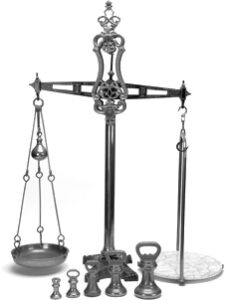What Does Legal for Trade Mean?
Legal for trade: Weighing up the requirements
In all commercial applications where product is sold by weight, it is a legal requirement that weighing equipment must be verified as ‘legal for trade’ or ‘trade approved’. In summary, this means that the equipment (from an individual scale to a complete pre-pack line) has undergone a stringent set of tests to ensure it is sufficiently accurate and fit for purpose.
If a trade approved unit undergoes any alteration or repair, it will require re-verification. Accordingly, this ensures that the approval remains valid.
The following list provides examples of typical applications where a legal-for-trade scale might be required:
- Determination of mass for commercial transactions.
- Determination of mass for the calculation of a toll, tariff, tax, bonus, penalty, remuneration, indemnity or similar type of payment.
- Determination of mass for the application of laws or regulations. Furthermore, expert opinion given in court proceedings.
- Determination of mass in the practice of medicine for weighing patients for the purposes of monitoring, diagnosis and medical treatment.
- Determination of mass for making up medicines on prescription in a pharmacy. Additionally determination of mass in analyses carried out in medical and pharmaceutical laboratories.
- Determination of price on the basis of mass for the purposes of direct sales to the public and the making-up of pre-packages.

Who governs this law?
Global:
Indeed, weights and measures authorities around the world are responsible for controlling legal for trade equipment and related legislation. In fact, most countries globally adopted International Organization of Legal Metrology (OIML) requirements for weighing equipment. Thus OIML developed a set of international guidelines relating to the manufacture and use of weighing and measuring instruments for legal metrology applications.
US specific:
In the US, requirements for legal for trade weighing equipment are laid out in Handbook 44 (Specific Tolerances and Other Technical Requirements for Weighing and Measuring Devices).
Equipment is certified under the National Type Evaluation Program (NTEP). Accordingly, this program is developed through cooperation between the National Conference on Weights and Measures (NCWM) and the Weights and Measure division of the National Institute for Standards and Technology (NIST). In fact, NTEP is a process for the testing and evaluation of weighing equipment and critical components. As such, this ensures their compliance with Handbook 44.
According to NTEP, the term ‘used for trade’ refers to devices that are used for selling, purchasing, exchanging, custody transfer, or establishing the cost for services or hire on the basis of a measurement.
By NTEPs terms, a ‘device’ is a weighing or measuring instrument. The term also refers to major elements.
Who can certify a product as legal for trade?
This certification can only be given by a weights and measures inspector or an ‘approved qualifier’. An appropriate approved body must evaluate the design and operation of the equipment. Thus, this is to ensure that it conforms to the published guidelines/ requirements. In fact, it’s also an offence to have, or use, seriously incorrect equipment or to alter equipment that is incorrect after it has been stamped.
Useful links:
International Organization of Legal Metrology (Global)
https://www.oiml.org/en/about/legal-metrology/trade
National Conference for Weights and Measures: NTEP (USA)
Measurement Canada
https://www.ic.gc.ca/eic/site/mc-mc.nsf/eng/home
*Disclaimer: This document is intended to provide a basic introduction, it is by no means an exhaustive explanation of the regulations and should not be used as such. Those needing to fully understand the how the law impacts upon their business should refer to the links outlined in the ‘useful links’ section of this page, or speak to one of our sales representatives.

 United Kingdom
United Kingdom  Canada
Canada  Canada (fr)
Canada (fr)  India
India  Malaysia
Malaysia  Ireland
Ireland